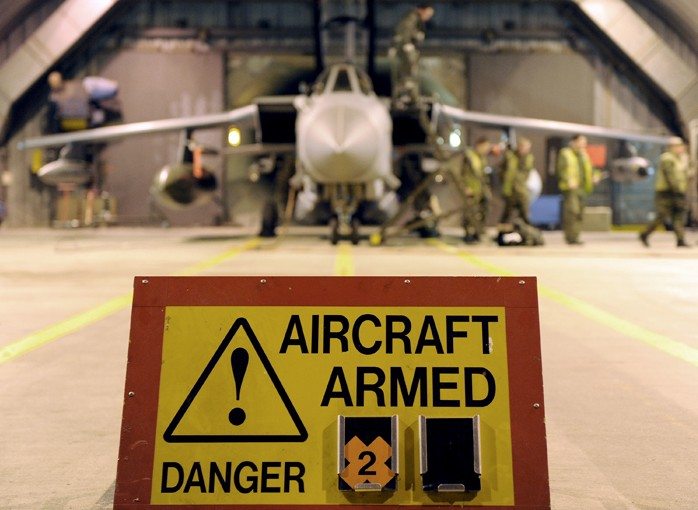Thirty years ago a remote South Atlantic island chain was thrust into the global glare as Britain and Argentina went to war over the Falklands, triggering a bitter conflict which rankles to this day.
Three decades later, the windswept archipelago remains at the centre of an ugly dispute pitting London and Buenos Aires, as political tensions flare again despite a new generation of leaders.
Argentine dictator General Leopoldo Galtieri, who ordered the April 2, 1982 dawn invasion of the islands as a welcome distraction from domestic economic woes, and former British prime minister Margaret Thatcher, keen to shore up her waning popularity, are now footnotes of history.
The brief, but bloody 74-day war, which triggered Britain’s biggest air and naval battle since World War II, cost the lives of 649 Argentine and 255 British troops and three Falkland Islanders.
It ended in defeat for Argentina, and sealed the two leaders’ fates.
Galtieri was ousted within a year returning Argentina to democracy, while Thatcher basked in her newly-won reputation as “The Iron Lady,” becoming Britain’s longest serving prime minister of the 20th century and reigning until 1990.
Despite the passage of time, their legacy still casts long shadows over two nations, divided by language and culture and some 12,000 kilometres (7,400 miles) of vast ocean.
Even though for most, the long-ago conflict in a place almost at the ends of the Earth pales by comparison to current uprisings, a new war of words is again souring relations.
With the approach of the 30th anniversary, Argentine President Cristina Kirchner has denounced British rule of the islands — held by Britain since 1833 and known in Spanish as the Malvinas — as an “anachronism.”
Her government has also accused Britain of militarising the seas around the islands, and was infuriated when London allowed oil exploration to start up in the surrounding waters in 2010.
The deployment of Prince William on a six-week mission with the Royal Air Force earlier this year sparked particular outrage in Argentina, which has persuaded some neighbours to refuse entry to ships bearing the Falklands flag.
Falkland islanders — known affectionately as “kelpers’ after the seaweed — say the blockade is beginning to bite, depriving them of fresh vegetables and produce on islands known for being good for sheep-rearing and little else.
Buenos Aires is also taking its renewed battle over the islands to international bodies, touting its claims at the United Nations and even a nuclear summit held this week in Seoul.
London however has shot back that the residents on the overseas territory, population about 3,000, want to remain part of Britain, and accuses Argentina of being “colonialist” by refusing them self-determination.
It has also angrily dismissed Argentine claims it has sent a nuclear-armed submarine to the South Atlantic.
In an unusually frank clash before more than 50 world leaders at the Seoul summit, Deputy Prime Minister Nick Clegg said accusations by Argentine Foreign Minister Hector Timerman was “unfounded, baseless insinuations.”
“Argentina really, really pushes and puts a lot of pressure on other countries in South America and isn’t afraid to use the leverage it has in the region, sometimes pretty brutally,” a British diplomatic source told reporters.
“Underpinning it is a basic assumption on behalf of the Argentine government that if they push hard enough and if they make enough noise they will somehow bring us back to the negotiating table and we will sit down and start talking about sovereignty. That isn’t going to happen.”
Six Nobel Peace laureates have increased the pressure urging London to open negotiations about the Falklands, as set out in UN resolutions.
This “lack willingness to talk with a democratic country (Argentina)… (is) seriously threatening peace and harmony in this part of the world,” the six, who include South African laureate Desmond Tutu, wrote.
Many historians believe Galtieri seriously misjudged the situation back in 1982. At the height of the Cold War and allied with the United States against Central American rebel insurgencies, he thought the omens were on his side.
But he had not reckoned with Thatcher’s steely resolve.
The Argentine army, used more for internal repression and bolstered by young draftees, proved no match for the professional British force.
“Argentina’s fundamental error was a strategic one — the war itself,” Juan Recce, an expert with the Argentine Center for International Studies, told AFP.










